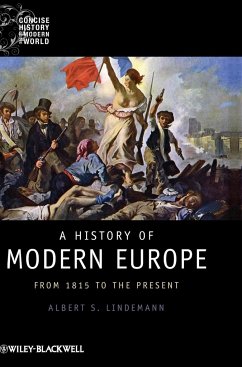Since the end of World War II, the move toward European unification has led to a struggle to define the "European identity." Ambiguous physical, cultural, and linguistic borders- among other challenges- make it impossible to identify one single trait that unites the entirety of this complex continent. A History of Modern Europe approaches the history of the continent through the framework of identity, from Europe's nineteenth-century sense of superiority through its uncertain process of self-identification in the early twenty-first. Thought-provoking and accessible, this narrative begins with the aftermath of Napoleon's defeat at the Battle of Waterloo and guides readers through contemporary Europe, tracing the rise of power, material wealth, and imperialism; the self-destruction of two World Wars; and Europe's development since the end of the Cold War.
'Lindemann combines succinct accounts of political history withdescriptions of intellectuals, culture, and social change, in anaccessible and clear narrative of European history from the FrenchRevolution to the present. Students will have in this single volumeboth a reliable resource and a compelling story about the changingconceptions of Europe in the modern world.' --Peter C.Caldwell, Rice University








